
Find Help
More Items From Ergsy search
-

What is the MMR vaccine?
Relevance: 100%
-

How effective is the MMR vaccine?
Relevance: 96%
-

How effective is the MMR vaccine?
Relevance: 95%
-
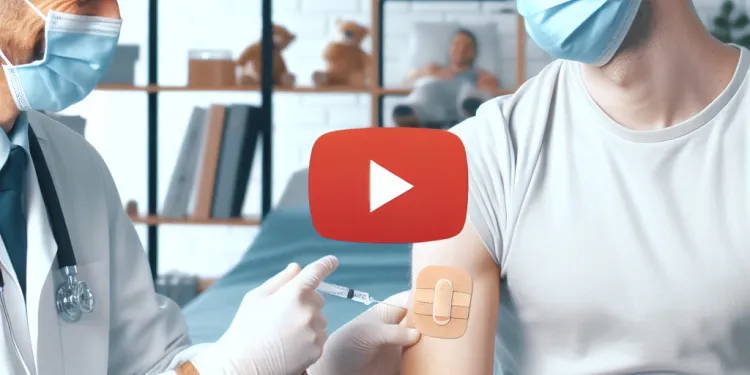
Can adults receive the MMR vaccine?
Relevance: 92%
-

At what age is the MMR vaccine given in the UK?
Relevance: 92%
-

Who should receive the MMR vaccine?
Relevance: 91%
-

At what age should children receive the MMR vaccine?
Relevance: 85%
-
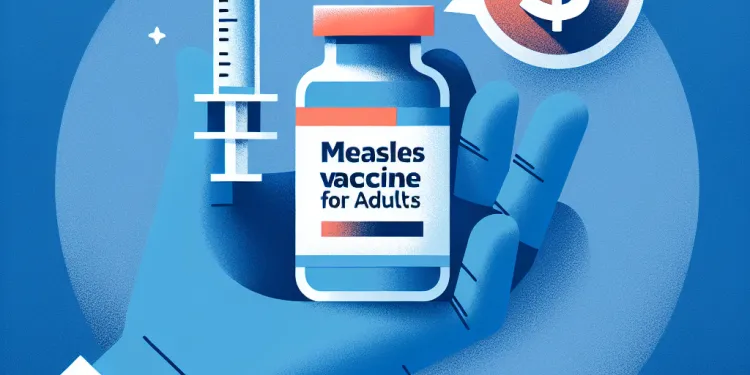
Can the measles vaccine be given to adults?
Relevance: 60%
-

What is the current measles vaccination coverage in the UK?
Relevance: 57%
-
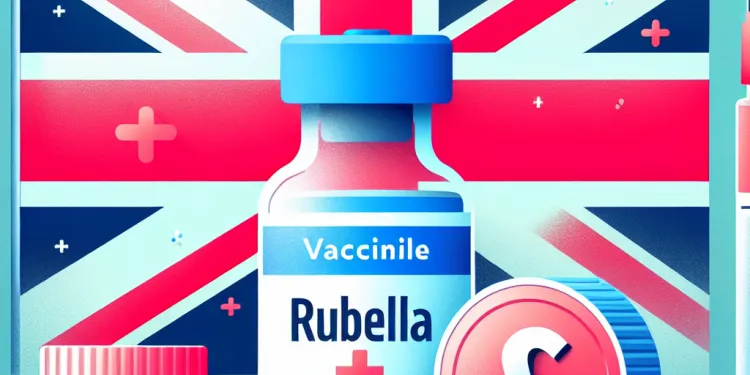
Who should receive the Rubella vaccine?
Relevance: 55%
-

How does vaccination affect measles rates?
Relevance: 55%
-

Children's Vaccination Schedule
Relevance: 50%
-

Is it necessary to get a measles vaccine before travelling?
Relevance: 49%
-

What is a live-attenuated vaccine?
Relevance: 48%
-

Are vaccines linked to autism?
Relevance: 47%
-

What are the different types of vaccines?
Relevance: 47%
-

Do I need any vaccine injections for EU countries?
Relevance: 46%
-

Can Rubella be prevented?
Relevance: 45%
-

How do vaccines work?
Relevance: 44%
-

What are vaccines and how do they work?
Relevance: 43%
-

Why is measles less common in the UK?
Relevance: 42%
-

How can measles outbreaks be prevented?
Relevance: 41%
-

What are the common side effects of vaccines?
Relevance: 40%
-

Are adults in the UK at risk from measles?
Relevance: 40%
-

Can vaccines cause the diseases they protect against?
Relevance: 40%
-

Are there vaccination recommendations for people with compromised immune systems?
Relevance: 40%
-

Are measles outbreaks common in the UK?
Relevance: 40%
-

Are there vaccines for meningitis?
Relevance: 39%
-

Are vaccines safe?
Relevance: 39%
-

What is a vaccine?
Relevance: 39%
-

Why has the UK lost its measles elimination status?
Relevance: 39%
-

Is there a vaccine for H3N2?
Relevance: 39%
-
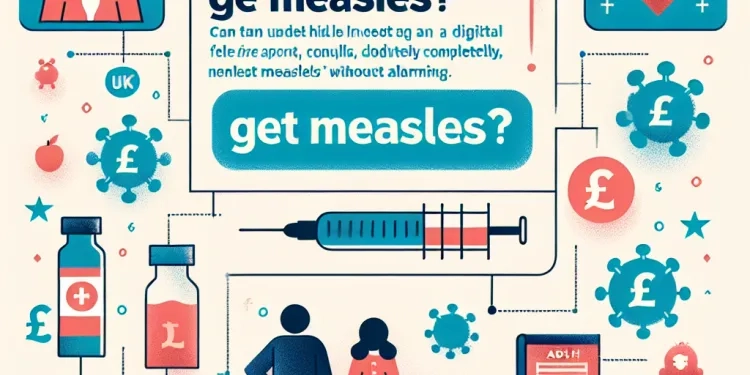
Can adults get measles?
Relevance: 39%
-

Is there a vaccine for norovirus?
Relevance: 39%
-

Is there a vaccine for gonorrhoea?
Relevance: 39%
-

Is there a vaccine for impetigo?
Relevance: 38%
-

Is there a vaccine for scabies?
Relevance: 38%
-
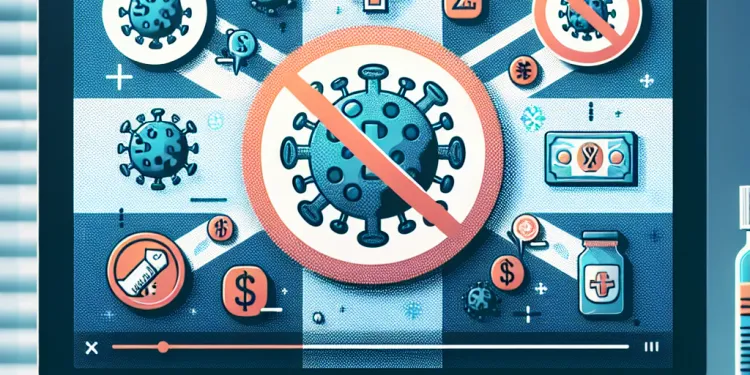
How can measles be prevented?
Relevance: 38%
-

What is a subunit vaccine?
Relevance: 37%
-

Is the shingles vaccine safe?
Relevance: 37%
The Effectiveness of the MMR Vaccine
The MMR vaccine, which stands for measles, mumps, and rubella, is a crucial part of immunization programs in the United Kingdom and worldwide. This combined vaccine offers protection against these three potentially serious viral diseases. Its significance has been underscored by the resurgence of measles in areas with declining vaccination rates, highlighting the vaccine's role in public health.
How the MMR Vaccine Works
Administered in two doses, the MMR vaccine uses weakened strains of the measles, mumps, and rubella viruses to stimulate the immune system without causing the diseases. The first dose is usually given to children between 12 and 15 months of age, followed by a second dose between 3 and 5 years old. This schedule ensures robust immunity. The UK’s National Health Service (NHS) recommends the MMR vaccine as part of the routine childhood immunization schedule.
Effectiveness Against Measles, Mumps, and Rubella
The MMR vaccine is highly effective, offering around 97% protection against measles, 88% against mumps, and 97% against rubella after two doses. The high effectiveness of the vaccine has been instrumental in reducing the incidence of these diseases significantly. For instance, before the vaccine's introduction, measles was a common condition affecting hundreds of thousands of children yearly. With widespread vaccination, these numbers have dropped drastically.
Public Health Impact
The MMR vaccine has a profound impact on public health by not only protecting individuals but also maintaining herd immunity. Herd immunity occurs when a high percentage of the population is vaccinated, thereby reducing the spread of the virus and protecting those who cannot be vaccinated due to medical reasons. This is particularly important for vulnerable groups such as infants, pregnant women, and those with compromised immune systems.
Addressing Vaccine Hesitancy
Despite its proven effectiveness and safety, the MMR vaccine has been subject to controversy and misinformation, particularly concerning a discredited study linking it to autism. Public health campaigns in the UK continue to address these misconceptions, emphasizing the vaccine's safety profile, extensive research, and monitoring which consistently demonstrate no credible link to autism. The concerted efforts aim to improve vaccination rates, protecting communities from potential outbreaks.
Overall, the MMR vaccine remains a cornerstone of preventive healthcare, crucial for safeguarding future generations against measles, mumps, and rubella. Its success in reducing disease prevalence highlights the importance of maintaining high vaccination coverage.
The Importance of the MMR Vaccine
The MMR vaccine helps protect you from three diseases: measles, mumps, and rubella. It's really important for health in the UK and all over the world. These diseases can be serious, but the vaccine can keep us safe. When more people get the vaccine, fewer people get sick. This shows how important the vaccine is for everyone.
How the MMR Vaccine Works
You need to get the MMR vaccine two times. It has weak versions of the viruses, so it helps your body learn to fight the real ones safely. Kids get their first shot when they are 12 to 15 months old. They get the second shot when they are 3 to 5 years old. This way, they stay protected. In the UK, the NHS says all kids should get this vaccine.
How Well the MMR Vaccine Works
The MMR vaccine works really well. It stops 97 out of 100 people from getting measles and rubella. It stops 88 out of 100 people from getting mumps after both shots. Before the vaccine, lots of kids got sick with measles. Thanks to the vaccine, much fewer kids get these diseases now.
How the MMR Vaccine Helps Everyone
The MMR vaccine helps not just you, but everyone around you. If lots of people have the vaccine, it's harder for the disease to spread. This is called herd immunity. Herd immunity is important for people who can't get vaccines, like very young babies or people who are very sick.
Understanding Concerns About the Vaccine
Some people worry about the MMR vaccine. They might have heard wrong things about it causing autism, but this is not true. Health experts have checked a lot, and the vaccine is safe. In the UK, there are efforts to tell people the truth, which helps more people feel safe to get it. This way, we can stop diseases from coming back.
In summary, the MMR vaccine is very important for keeping everyone healthy. It's a strong measure against measles, mumps, and rubella. Keeping up with the vaccine means fewer people get sick and everyone stays safer.
Frequently Asked Questions
What is the MMR vaccine?
The MMR vaccine is a safe and effective combined vaccination that protects against three serious illnesses: measles, mumps, and rubella.
How effective is the MMR vaccine?
The MMR vaccine is highly effective, with two doses providing about 97% protection against measles, 88% against mumps, and 97% against rubella.
How many doses of the MMR vaccine are needed for full protection?
Two doses of the MMR vaccine are needed to ensure optimal protection against measles, mumps, and rubella.
At what age should children receive the MMR vaccine in the UK?
In the UK, the first dose of the MMR vaccine is usually given when a child is 12 to 13 months old, and the second dose at 3 years and 4 months, alongside the pre-school booster.
Is the MMR vaccine safe?
Yes, the MMR vaccine is safe. It has been thoroughly tested and monitored for safety and effectiveness and has been in use since the 1970s.
Can the MMR vaccine be given to adults?
Yes, adults who have not been vaccinated or have not had measles, mumps, or rubella should receive the MMR vaccine.
What are the risks associated with the MMR vaccine?
Most people do not experience any side effects, but some may have mild reactions like fever or a rash. Serious side effects are rare.
Does the MMR vaccine cause autism?
No, extensive research has shown that there is no link between the MMR vaccine and autism.
Can the MMR vaccine be given with other vaccines?
Yes, the MMR vaccine can safely be given at the same time as other vaccines or at any interval before or after other vaccines.
What should I do if my child misses a scheduled MMR vaccination?
Contact your GP surgery to catch up on any missed doses. They can provide advice and schedule another appointment.
Are there any reasons to delay the MMR vaccination?
Vaccination might be postponed if your child is very ill with a high temperature. Minor illnesses, like a cold, should not prevent vaccination.
Who should not receive the MMR vaccine?
The MMR vaccine should not be given to individuals with severe allergies to any vaccine component or those who are pregnant.
How does the MMR vaccine work?
The MMR vaccine contains weakened versions of the measles, mumps, and rubella viruses, which stimulate the immune system to develop protection without causing the diseases.
Why is vaccinating against measles, mumps, and rubella important?
Vaccination protects individuals and communities by preventing outbreaks of these potentially serious diseases and their complications.
Where can I get more information about the MMR vaccine in the UK?
You can find more information from NHS resources, speak to your GP or health visitor, or visit the NHS website.
What is the MMR vaccine?
The MMR vaccine is a shot. It helps stop you from getting three illnesses: measles, mumps, and rubella. These are diseases that can make you very sick.
The vaccine helps your body fight these diseases. This way, you don't get sick with them.
Talk to a doctor or nurse if you want to know more. They can help explain it to you.
The MMR vaccine is a shot that keeps you safe from three bad sicknesses: measles, mumps, and rubella. It works really well and is safe.
Does the MMR shot work well?
The MMR shot helps stop you from getting three bad illnesses: measles, mumps, and rubella.
The shot works very well. Most people who get the shot don't get sick from these illnesses. It's like having a strong shield to protect you.
If you have questions or are worried, it's a good idea to talk to your doctor. They can give you more information and help you feel better about getting the shot.
You can also ask someone you trust to help you read about the MMR shot. There are tools and apps that can read the words out loud or make the words bigger, so they are easier to understand.
The MMR vaccine keeps you safe from three sicknesses: measles, mumps, and rubella. If you have two shots of the vaccine, it works really well. It stops 97 out of 100 people from getting measles. It stops 88 out of 100 people from getting mumps. And it stops 97 out of 100 people from getting rubella.
How many MMR shots do you need to be safe?
You need 2 MMR shots to be safe. The MMR shots help keep you safe from measles, mumps, and rubella.
You can use pictures or videos to help understand how MMR shots work.
You need two shots of the MMR vaccine to be best protected from measles, mumps, and rubella.
How old are kids when they get the MMR shot in the UK?
In the UK, kids usually get the MMR shot when they are 1 year old and a second shot when they are 3 years and 4 months old.
Helpful tools: You can use a calendar to note down the dates for the shots.
In the UK, kids get their first MMR shot at 12 or 13 months old. They get the second shot when they are 3 years and 4 months old. This is given with their school booster.
Is the MMR shot safe?
The MMR shot helps stop measles, mumps, and rubella. Doctors say it is safe. It helps keep people from getting sick. It is good for most kids and adults. Some people might feel a bit sore or have a fever after the shot. But it does not happen often.
If you are not sure, ask your doctor. You can also ask a nurse. They can tell you more. They know a lot about the MMR shot.
Remember, the MMR shot helps keep you and others healthy!
Yes, the MMR shot is safe. Doctors have checked it carefully to make sure it works well and is safe. People have been using it since the 1970s.
Can adults get the MMR vaccine?
Yes, grown-ups who have not got the vaccine or have not had measles, mumps, or rubella should get the MMR shot.
What are the risks of the MMR vaccine?
The MMR vaccine helps protect you from 3 diseases: measles, mumps, and rubella.
Most people have no problems with the vaccine. Some people might have:
- A sore arm where the shot was given
- A fever
- A mild rash
These side effects are usually mild and go away quickly.
If you are worried, talk to a doctor or a nurse. They can help explain things clearly.
Most people do not feel bad after getting a vaccine. Some people might get a little sick. This could be a small fever or a rash. Bad side effects do not happen often.
Does the MMR vaccine cause autism?
The MMR vaccine does not cause autism. Scientists have done many studies to make sure. They found no link between the MMR vaccine and autism. Vaccines are safe and help protect you from diseases.
If reading is hard, try reading with a buddy or using a reading app. They can help you understand better.
No, lots of studies show that the MMR vaccine does not cause autism.
Can you get the MMR shot with other shots?
Yes, you can get the MMR shot with other shots. It's safe to do this.
If you need help understanding this, you can:
- Ask a grown-up to explain it to you.
- Use pictures to see how it works.
Yes, the MMR shot is safe to have with other shots. You can get it before or after other shots too, and that's okay.
What if my child misses their MMR vaccine appointment?
If your child misses their MMR vaccine, don't worry. You can do these things to help:
- Call your doctor or nurse and tell them. They can help you make a new appointment.
- Ask them any questions you have about the vaccine.
- Use a calendar or ask someone to remind you about the new date.
Talk to your local doctor’s office if you missed any doses of your medicine. They can help you and make a new appointment.
When should you wait to get the MMR vaccine?
If your child feels very sick and has a high fever, it might be better to wait before giving them a vaccine. But, if they just have a little cold, they can still get the vaccine.
Who should not get the MMR shot?
People who have strong allergies to any part of the MMR vaccine or who are going to have a baby should not get this vaccine.
How does the MMR vaccine work?
The MMR vaccine helps protect you from three diseases. These are measles, mumps, and rubella.
The vaccine teaches your body how to fight these diseases.
Here's how it works:
- The vaccine gives your body a tiny, safe piece of the virus.
- Your body learns to fight this piece, like practice for a big game.
- If you meet the real virus later, your body knows how to fight it off.
This way, the vaccine can stop you from getting sick.
Try using pictures or videos to understand better.
Ask a parent or teacher if you have questions.
The MMR vaccine helps protect you from three illnesses called measles, mumps, and rubella. It has tiny, weak parts of these germs. This helps your body learn to fight these illnesses without making you sick.
Why should you get the vaccine for measles, mumps, and rubella?
Vaccines help protect you from getting sick. The measles, mumps, and rubella vaccine (called the MMR vaccine) stops you from catching these diseases.
Here is why getting the MMR vaccine is important:
- Stop germs: The vaccine helps your body fight against the germs that cause these diseases.
- Stay healthy: When you get the vaccine, you are less likely to get very sick.
- Protect others: If you don't get sick, you do not spread the disease to people around you, like your family and friends.
- Safe communities: When more people get vaccinated, everyone stays safer and healthier.
Here are some tips that can help you:
- Ask a grown-up, like a parent or a doctor, if you need the vaccine.
- Watch videos or read books about vaccines to understand how they help.
- Use reminders to remember when to get your vaccine.
Getting vaccines helps protect people and the whole community. It stops the spread of bad diseases and keeps people from getting really sick.
Where can I learn more about the MMR vaccine in the UK?
You can find out more about the MMR vaccine in these ways:
- Visit your local doctor's office or health clinic to ask questions.
- Look at trusted websites like the NHS (National Health Service).
- Ask a nurse or a doctor for a leaflet to read at home.
- Watch videos made by doctors about the MMR vaccine.
To help you understand better, you can:
- Use a dictionary to check words you don't know.
- Ask someone you trust to help explain things.
You can learn more from NHS books and websites. You can also ask your doctor or nurse for help. Visit the NHS website for more info.
Useful Links
This website offers general information and is not a substitute for professional advice.
Always seek guidance from qualified professionals.
If you have any medical concerns or need urgent help, contact a healthcare professional or emergency services immediately.
Some of this content was generated with AI assistance. We’ve done our best to keep it accurate, helpful, and human-friendly.
- Ergsy carfully checks the information in the videos we provide here.
- Videos shown by Youtube after a video has completed, have NOT been reviewed by ERGSY.
- To view, click the arrow in centre of video.
- Most of the videos you find here will have subtitles and/or closed captions available.
- You may need to turn these on, and choose your preferred language.
- Go to the video you'd like to watch.
- If closed captions (CC) are available, settings will be visible on the bottom right of the video player.
- To turn on Captions, click settings .
- To turn off Captions, click settings again.
More Items From Ergsy search
-

What is the MMR vaccine?
Relevance: 100%
-

How effective is the MMR vaccine?
Relevance: 96%
-

How effective is the MMR vaccine?
Relevance: 95%
-

Can adults receive the MMR vaccine?
Relevance: 92%
-

At what age is the MMR vaccine given in the UK?
Relevance: 92%
-

Who should receive the MMR vaccine?
Relevance: 91%
-

At what age should children receive the MMR vaccine?
Relevance: 85%
-

Can the measles vaccine be given to adults?
Relevance: 60%
-

What is the current measles vaccination coverage in the UK?
Relevance: 57%
-

Who should receive the Rubella vaccine?
Relevance: 55%
-

How does vaccination affect measles rates?
Relevance: 55%
-

Children's Vaccination Schedule
Relevance: 50%
-

Is it necessary to get a measles vaccine before travelling?
Relevance: 49%
-

What is a live-attenuated vaccine?
Relevance: 48%
-

Are vaccines linked to autism?
Relevance: 47%
-

What are the different types of vaccines?
Relevance: 47%
-

Do I need any vaccine injections for EU countries?
Relevance: 46%
-

Can Rubella be prevented?
Relevance: 45%
-

How do vaccines work?
Relevance: 44%
-

What are vaccines and how do they work?
Relevance: 43%
-

Why is measles less common in the UK?
Relevance: 42%
-

How can measles outbreaks be prevented?
Relevance: 41%
-

What are the common side effects of vaccines?
Relevance: 40%
-

Are adults in the UK at risk from measles?
Relevance: 40%
-

Can vaccines cause the diseases they protect against?
Relevance: 40%
-

Are there vaccination recommendations for people with compromised immune systems?
Relevance: 40%
-

Are measles outbreaks common in the UK?
Relevance: 40%
-

Are there vaccines for meningitis?
Relevance: 39%
-

Are vaccines safe?
Relevance: 39%
-

What is a vaccine?
Relevance: 39%
-

Why has the UK lost its measles elimination status?
Relevance: 39%
-

Is there a vaccine for H3N2?
Relevance: 39%
-

Can adults get measles?
Relevance: 39%
-

Is there a vaccine for norovirus?
Relevance: 39%
-

Is there a vaccine for gonorrhoea?
Relevance: 39%
-

Is there a vaccine for impetigo?
Relevance: 38%
-

Is there a vaccine for scabies?
Relevance: 38%
-

How can measles be prevented?
Relevance: 38%
-

What is a subunit vaccine?
Relevance: 37%
-

Is the shingles vaccine safe?
Relevance: 37%


